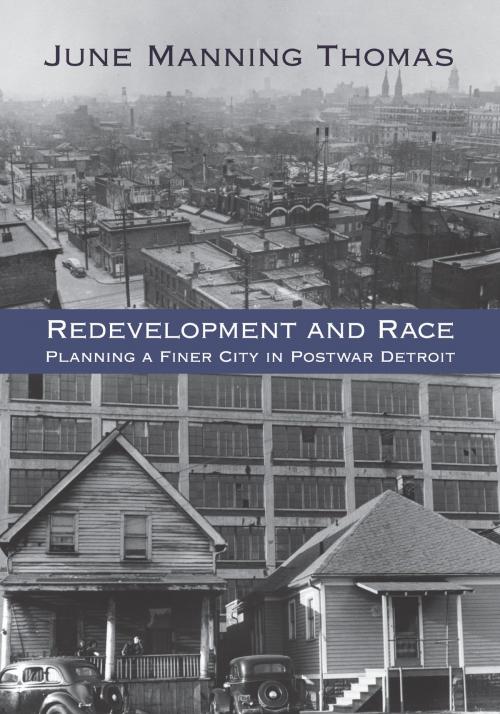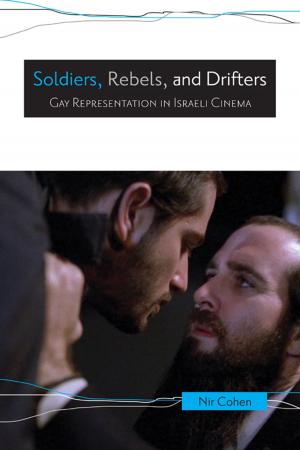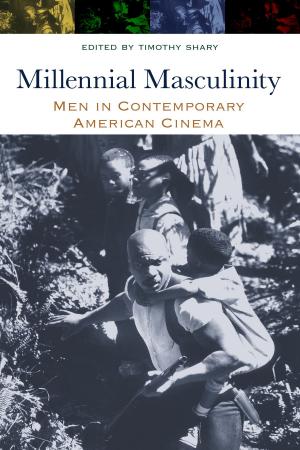Redevelopment and Race
Planning a Finer City in Postwar Detroit
Nonfiction, Social & Cultural Studies, Social Science, Discrimination & Race Relations, History, Americas, United States, 20th Century| Author: | June Manning Thomas | ISBN: | 9780814339084 |
| Publisher: | Wayne State University Press | Publication: | April 15, 2013 |
| Imprint: | Wayne State University Press | Language: | English |
| Author: | June Manning Thomas |
| ISBN: | 9780814339084 |
| Publisher: | Wayne State University Press |
| Publication: | April 15, 2013 |
| Imprint: | Wayne State University Press |
| Language: | English |
In the decades following World War II, professional city planners in Detroit made a concerted effort to halt the city's physical and economic decline. Their successes included an award-winning master plan, a number of laudable redevelopment projects, and exemplary planning leadership in the city and the nation. Yet despite their efforts, Detroit was rapidly transforming into a notorious symbol of urban decay. In Redevelopment and Race: Planning a Finer City in Postwar Detroit, June Manning Thomas takes a look at what went wrong, demonstrating how and why government programs were ineffective and even destructive to community needs. In confronting issues like housing shortages, blight in older areas, and changing economic conditions, Detroit's city planners worked during the urban renewal era without much consideration for low-income and African American residents, and their efforts to stabilize racially mixed neighborhoods faltered as well. Steady declines in industrial prowess and the constant decentralization of white residents counteracted planners' efforts to rebuild the city. Among the issues Thomas discusses in this volume are the harmful impacts of Detroit's highways, the mixed record of urban renewal projects like Lafayette Park, the effects of the 1967 riots on Detroit's ability to plan, the city-building strategies of Coleman Young (the city's first black mayor) and his mayoral successors, and the evolution of Detroit's federally designated Empowerment Zone. Examining the city she knew first as an undergraduate student at Michigan State University and later as a scholar and planner, Thomas ultimately argues for a different approach to traditional planning that places social justice, equity, and community ahead of purely physical and economic objectives. Redevelopment and Race was originally published in 1997 and was given the Paul Davidoff Award from the Association of Collegiate Schools of Planning in 1999. Students and teachers of urban planning will be grateful for this re-release. A new postscript offers insights into changes since 1997.
In the decades following World War II, professional city planners in Detroit made a concerted effort to halt the city's physical and economic decline. Their successes included an award-winning master plan, a number of laudable redevelopment projects, and exemplary planning leadership in the city and the nation. Yet despite their efforts, Detroit was rapidly transforming into a notorious symbol of urban decay. In Redevelopment and Race: Planning a Finer City in Postwar Detroit, June Manning Thomas takes a look at what went wrong, demonstrating how and why government programs were ineffective and even destructive to community needs. In confronting issues like housing shortages, blight in older areas, and changing economic conditions, Detroit's city planners worked during the urban renewal era without much consideration for low-income and African American residents, and their efforts to stabilize racially mixed neighborhoods faltered as well. Steady declines in industrial prowess and the constant decentralization of white residents counteracted planners' efforts to rebuild the city. Among the issues Thomas discusses in this volume are the harmful impacts of Detroit's highways, the mixed record of urban renewal projects like Lafayette Park, the effects of the 1967 riots on Detroit's ability to plan, the city-building strategies of Coleman Young (the city's first black mayor) and his mayoral successors, and the evolution of Detroit's federally designated Empowerment Zone. Examining the city she knew first as an undergraduate student at Michigan State University and later as a scholar and planner, Thomas ultimately argues for a different approach to traditional planning that places social justice, equity, and community ahead of purely physical and economic objectives. Redevelopment and Race was originally published in 1997 and was given the Paul Davidoff Award from the Association of Collegiate Schools of Planning in 1999. Students and teachers of urban planning will be grateful for this re-release. A new postscript offers insights into changes since 1997.















